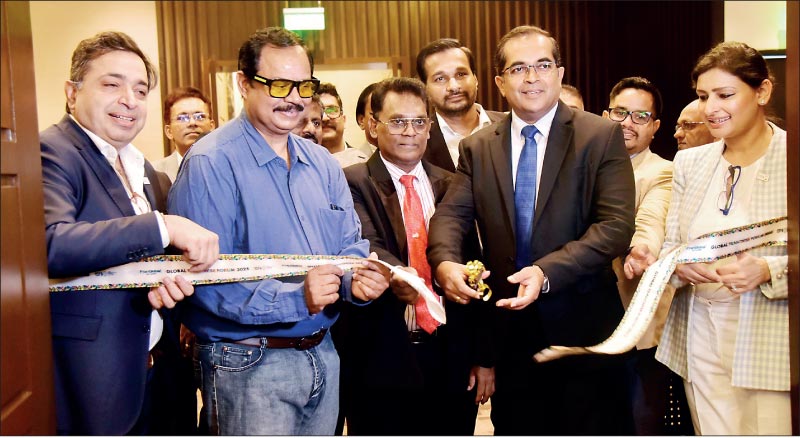
ISFA Additional Director General Sonya Chowdhry

- At Sri Lanka Franchise Show organised by Indian Small Business & Franchise Association Additional Director General Sonya Chowdhry says encouraging franchising in Sri Lanka will speed up economic recovery
- Argues franchising is proven business model unlikely to fail, ensuring sustained and high-pay jobs for youth
- Emphasises role of franchising in equipping youth with know-how needed to dive into entrepreneurship
- Notes inadequate existence of franchise companies in country, calling for Govt. to create business ecosystem conducive to franchise investment
- Remarks franchise investment can support SMEs experiencing shortfalls in capital
By Janani Kandaramage
Indian Small Business & Franchise Association (ISFA) Additional Director General Sonya Chowdhry yesterday highlighted the potential of franchising as a low-risk and proven approach to stimulate economic recovery, propelling the nation towards its lofty goal of reaching 5% GDP growth in 2025.
Delivering the welcome address at the Sri Lanka Franchise Show organised by the ISFA, she said franchising offers a tested business model that provides both direct and indirect employment. Noting the difference between the two phenomena, she argued that direct employment arises from the operation of franchise outlets, while indirect employment stems from supply chain and support services.
“In the present, with approximately 1 million youth in Sri Lanka, a significant number are engaged in informal sectors like three-wheeler driving, while others aspire for Government jobs, which are limited and low-paying,” she remarked, adding, “This trend highlights a gap in employment opportunities for the youth.”
To avert this cascading crisis, Chowdhry argues that Government investment in a proven business framework like franchising, rather than in high-risk, untapped initiatives, is unlikely to lead to losses.
“This is because franchising not only creates jobs for youth but also offers these individuals opportunities to own and manage businesses within established systems and operational standards provided by the franchisor. This includes support such as ongoing training, marketing, and operational support from the main hub of the franchisor, significantly reducing risks while aiding them in aligning with global standards, “she opined.
In addition to youth empowerment, the IFSA Additional Director General also stressed the need to democratise entrepreneurship in the immediate future through franchising – facilitating innovation, professional autonomy, and unlimited GDP growth.
By allowing locals to leverage the resources and expertise of an established organisation, entrepreneurship is fostered by enabling swifter market entry and minimising the learning curve associated with starting a business from scratch.
Nevertheless, she acknowledges the insufficient number of franchise companies, attributing it to a lack of capital, stating: “The Sri Lankan Government has only recently initiated policies to support small and micro-enterprises and Foreign Direct Investment (FDI) policies to create an ecosystem conducive to franchising. However, challenges remain, particularly in providing adequate funding and infrastructure for micro-entrepreneurs to not only start up but sustain.”
Chowdhry urged for enhanced reforms to the banking sector, allowing for a greater diversity of loan options, arguing that “the Government alone cannot ease access to adequate funding.”
Observing a lack of technical expertise in business management, particularly in small and medium-sized enterprises (SMEs), she called for programs aimed at building the know-how of budding entrepreneurs while stressing the need for capital equipment via loans.
“Franchising can bridge this gap by offering low-capital investment opportunities with high success rates, thereby complementing Government efforts, and contributing to overall economic growth. Therefore, it is crucial that the Government makes sure to create an environment friendly to franchising. If we grow the number of franchise businesses in this country by 10 times, we can double the nation’s economic growth.”
Commenting on the existing measures undertaken by the Government, the IFSA Additional Director General expressed hope in the present administration’s commitment to SMEs and investment that will aid local franchise development eventually.
She noted: “With the right support and infrastructure, franchising can become a cornerstone of Sri Lanka’s economic development, creating jobs, empowering youth, and fostering a culture of entrepreneurship. By embracing franchising, Sri Lanka can pave the way for a more resilient and diversified economy.”








